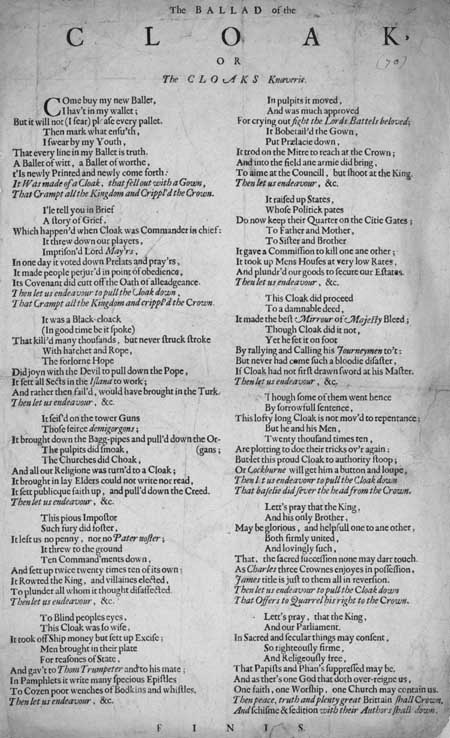Commentary
Verse 1: 'Come buy my new Ballet, / I hav't in my wallet; / But it will not (I fear) please every pallet. / Then mark what ensu'th, / I swear by my Youth, / That every line in my Ballet is truth. / A Ballet of witt, a Ballet of worthe, / t'Is newly Printed and newly come forth: / It Was made of a Cloak, that fell out with a Gown, / That Crampt all the Kingdom and Crippl'd the Crown.' This ballad is an attack on the Covenanted Church of Scotland, represented here by a black cloak. The National Covenant was drawn up and signed by members of the Presbyterian Church of Scotland in 1638. The Covenant reiterated the evils of Roman Catholicism and asserted the Church's independence from the Episcopalianism practised by King Charles I and many of the nobles who supported him. Ultimately, the Covenanters would be drawn into civil war against the Royalists, and this ballad blames the Covenanters for the eventual execution of Charles I as well as other evils done against Scotland. Early ballads were dramatic or humorous narrative songs derived from folk culture that predated printing. Originally perpetuated by word of mouth, many ballads survive because they were recorded on broadsides. Musical notation was rarely printed, as tunes were usually established favourites. The term 'ballad' eventually applied more broadly to any kind of topical or popular verse.
View Transcription | Download PDF Facsimile
|
 |
Probable date published:
1681 shelfmark: L.C.Fol.76(039)
 View larger image
View larger image
|


